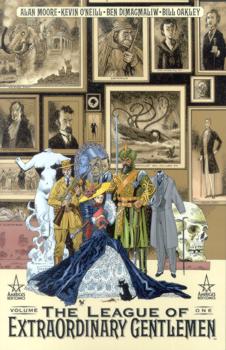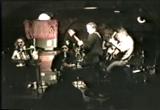 The Other Minds Archive*, which is hosted by the Internet Archive, represents the organization’s efforts to digitally preserve and make freely available, hundreds of hours of interviews, lectures, poetry readings, and musical performances featuring avant-garde composers, musicians, artists, and authors. Many of these programs were originally broadcast on Berkeley California’s KPFA-FM during the later half of the 20th century, while others are taken from the Other Minds Festivals and various private collections. The Other Minds Archive is a veritable treasure trove, with something for everyone’s tastes, be it jazz, classical, rock, poetry, radio dramas, soundscapes, text-sound compositions, or just downright bizarre, unclassifiable auditory content.
The Other Minds Archive*, which is hosted by the Internet Archive, represents the organization’s efforts to digitally preserve and make freely available, hundreds of hours of interviews, lectures, poetry readings, and musical performances featuring avant-garde composers, musicians, artists, and authors. Many of these programs were originally broadcast on Berkeley California’s KPFA-FM during the later half of the 20th century, while others are taken from the Other Minds Festivals and various private collections. The Other Minds Archive is a veritable treasure trove, with something for everyone’s tastes, be it jazz, classical, rock, poetry, radio dramas, soundscapes, text-sound compositions, or just downright bizarre, unclassifiable auditory content.
As the main cataloger of the Other Minds Archive I have had the singular pleasure of listening to these programs and have come up with a brief list of some of my favorite ones. These include an interview with John Cage from 1963, conducted by a young critic who peppers the composer with a series of antagonistic questions. With the deft skill of a Zen master, Cage manages to deflect the aggressive tone of his interviewer, while answering his inquiries, and even making a few gentle yet pointed comments of his own.
Another classic example of verbal dexterity is found in a press conference given by William S. Burroughs in 1974. In a relatively short amount of time Burroughs manages to offer his opinions on a wide variety of subjects, including the women’s movement, Richard Nixon and Watergate, governmental methods of civilian control, the possibilities of revolution and rebellion in the contemporary era, as well as a discussion of his cut-up writing technique, all presented in the deadpan, guttural style that is uniquely his own. The poor reporters are torn between their need to obtain information for their respective publications and their desire to genuflect before the master of conspiratorial commentary.
Matching both Cage and Burroughs in oratorical finesse but perhaps less well known to the average listener is pianist, conductor, composer, musicologist and raconteur extraordinaire, Nicolas Slonimsky, who is featured in a number of programs in the Archive. Perhaps the best of these is a recording of a lecture and musical demonstration given by Slonimsky at the Berkeley Piano Club in 1971. In a two hour tour-de-force Slonimsky covers such topics as atonality, the Grandmother chord, and harsh musical reviews that proved to be vastly inaccurate. Slonimsky also describes the dangers he faced when trying to introduce to a Classical musical audience the adventurous new music of Edgard Varèse and Charles Ives during a 1933 concert at the Hollywood Bowl, as well as his critical opinion of Post-modern Performance Art. As with all his talks this one is delivered at break-neck speed that clearly belied his age of 80 years.
For those listeners interested in more contemporary, non-Classical-oriented composers, the Archive has a number of interviews with popular artists including David Byrne, Brian Eno, and Laurie Anderson. While each of these is featured in their own 2-hour interview with musical interludes, in which they discuss their art, it is the recording made at Laurie Anderson’s record release party for her “O Superman” 7-inch record that I like the best. Made by the then KPFA Music Director and current Other Minds Artistic Director, Charles Amirkhanian, it is a rare opportunity to eavesdrop as he wanders through the noisy crowd at The Kitchen nightclub in New York City, meeting and chatting with Anderson and other old friends from the East Coast avant-garde scene.
Amirkhanian who hosts the majority of the programs in the Other Minds Archive, is also a composer in his own right, and there are several programs in the Archive devoted to one of his favorite art forms, text-sound compositions or sound poetry. These include a one-hour history of sound poetry replete with examples by Amirkhanian, Gertrude Stein, Dadaist Kurt Schwitters, and others. For those unfamiliar with text-sound compositions this program serves as an excellent tutorial and will likely encourage any budding artists and poets to go to their computers and start creating their own works. However for pure humor, nothing compares to the in-studio shenanigans of Amirkhanian and Anthony Gnazzo, another Bay Area sound poet, composer, and general electronic music studio wizard. The program “Collected Audiophonies” which combines elements of sound poetry and an aleatoric audio montage is a classic example of the semi-improvised hilarity that ensues when these two friends get together in a music studio.
Also not to be missed are the KPFA Radio Events, one-of-a-kind radio programming in which local artists were given a couple of hours on-air to create a unique interactive experience for the listening audience. These include Anna Halprin’s “Furniture Mix” in which the audience was encouraged to re-arrange their furniture at home while listening to the music, and then to fantasize about the possibilities such an experience engendered. The audience was then requested to call into the station and share their fantasies with others. What follows is one of the most entertaining hours of radio programming ever heard, as listener’s testimonials run the gambit from inspirational soliloquies about how their lives had been changed by the experience, to angry complaints about broken furniture. Long before reality TV became popular, KPFA was breaking down the barriers separating the listeners from the content producers.
And finally, in addition to these historical radio programs the Other Minds Archive also contains many high quality, digital recordings of musical performances culled from over a decade of the Other Minds Festivals of New Music. These are works by some of the best contemporary composers of avant-garde and new music, performed by some of the most talented musicians from around the world. Many of these performances represent the world premiere of the works, and indeed for some, the Other Minds Archive is the only place one can hear a recording of these remarkable pieces. For anybody interested in contemporary music in all its forms the Other Minds Archive is an extremely valuable resource that offers not only superb performances but also provides the essential background information and context to truly appreciate the work of these great composers and artists.
-Stephen Upjohn and the Staff of Other Minds
*Other Minds is a San Francisco based non-profit devoted to presenting, recording, commissioning, and preserving innovative new, avant-garde, and experimental music in all it forms. Other Minds produces an annual three-day Festival of New Music featuring the most original, eccentric, and underrepresented creative voices in contemporary music from around the globe, as well as a number of smaller concerts and recitals throughout the year. Other Minds also produces a select number of CDs by notable avant-garde composers, which are available at our website www.otherminds.org.
Additional details on all the programs in the Other Minds Archive, is available at www.radiom.org.
 Yeah, it doesn’t exactly roll off the tongue. Alan Moore’s series, The League of Extraordinary Gentlemen , affords the readers a Steampunk setting for these fanciful creations of Victorian imagination.
Yeah, it doesn’t exactly roll off the tongue. Alan Moore’s series, The League of Extraordinary Gentlemen , affords the readers a Steampunk setting for these fanciful creations of Victorian imagination.
 Whistling Coquette
Whistling Coquette







 As days grow shorter and winter evenings stretch out ever longer, the contemplative voice of a solo piano can be quite soothing. The Archive has some wonderful selections to accent tea or wine-sipping evenings spent at home:
As days grow shorter and winter evenings stretch out ever longer, the contemplative voice of a solo piano can be quite soothing. The Archive has some wonderful selections to accent tea or wine-sipping evenings spent at home: